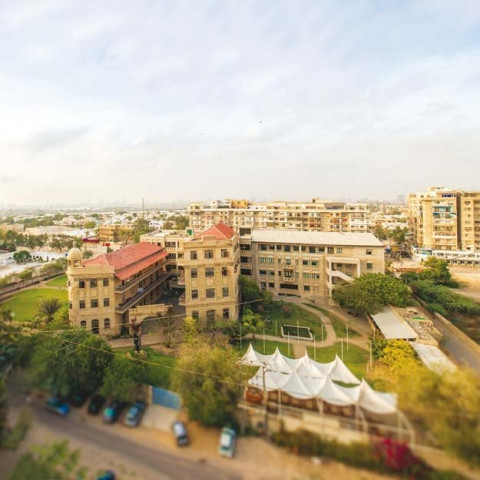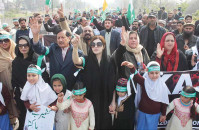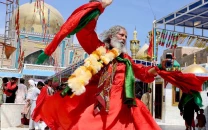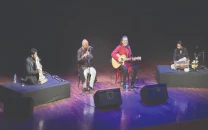Art for art’s sake: Spaces and places through a camera lens
Collaboration of writers, photographers and architects yields interesting perspectives

A view of IVS in Karachi. PHOTO: FILE
The book is the third publication by A Black Olive Publication, a collaboration of the duo.
Eight groups comprising a photographer, an architect and a writer were brought together to create eight compelling stories. The photographers captured the architects' work on camera and the writers composed a short essay of around 700 words about the photographs.
Young artists stun crowds with their creativity

"Everyone has a different way of looking at architecture," explained Faruqi, who was paired with photographer Tapu Javeri and writer Fifi Haroon. "I'm more of an introvert so to see what Tapu did with the project was a surprise," he laughed, gesturing to the prints hanging on the wall, depicting rooms onto human bodies. People tend to become smaller in comparison to spaces and Javeri's concept involved the person becoming bigger than the space, according to Faruqi. "We wanted to [bring together people of] different disciplines and make them work together," he added.
Amean J collaborated with architect Tariq Hassan and writer Shandana Minhas to create a "keyhole" into Hassan's work. His series of photographs seem as if the viewer is sneaking a peak into a private home through a keyhole, he explained. "These are private spaces so the photographs are a surprise, almost vague," he said.
The other side: A show that brings to light the inner self
We have a very diverse set of people working with us on this book, said J, who added that this is a bigger project than what he and Faruqi have worked on before and therefore required the help of more people. "It's a cross over between mediums and some people may like it while others don't. At the end it's a journey," he shrugged.
The project is about exploring spaces, according to him, and each team had eight double spread pages to fill in the book. "We wanted to give the younger photographers the opportunity to work with some of the more seasoned artists," he explained.
One of these young photographers is Emaan Rana who collaborated with architect Habib Fida Ali and writer Mamun N Adil. Adil explained that Rana's work in photographing Ali's own home interested him greatly. I researched the house and found out that it was once a school, he explained. "The writing is about how the pictures moved you and the writer's interpretation of them," he said. The photographs are shrouded in shadows but show glimpses of personal touches such as a bookshelf or a photograph. "It was easy to write [about the photographs] since [Ali's] home is so beautiful," said Adil.
"It is this light - and the shadows it brings - that segue the memories of yesterday with today. It is this light that radiates far beyond the constrictions of time and space," reads an excerpt of Adil's essay.
Each photograph in the book is about identity; the identity of the photographers and architects and the essays depict the identity of the writers. "I think it's fantastic to get different people together to create something that is collectible," said journalist Ayesha Tammy Haq, a guest at the event.
Published in The Express Tribune, January 13th, 2016.



















COMMENTS
Comments are moderated and generally will be posted if they are on-topic and not abusive.
For more information, please see our Comments FAQ